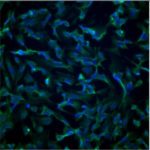Link to Pubmed [PMID] – 21689721
Biochimie 2011 Oct;93(10):1731-7
Recently, an increasing number of studies describe the existence of non-coding RNAs (ncRNAs) involved in gene expression modulation. Since the observation that antisense ncRNAs are implicated in human disorders, there is more and more interest in ncRNAs. A commonly used technique to investigate the expression of an antisense ncRNAs is strand-specific reverse transcription coupled with polymerase chain reaction (RT-PCR). The advantage of this accurate technique is that it does not require any special equipment or expertise. The disadvantage is that it can lead easily to false-positive results. We applied strand-specific RT-PCR to investigate the presence of antisense ncRNA associated to Retinoic Acid Receptor Beta 2 (RARβ2) in different human tumoral cell lines. By performing this technique, we observed false-positive detection of ncRNA. For accurate interpretation of the results in RT-PCR experiments, we introduced a «No primer» control that reveals non-specific cDNA synthesis. Moreover, we report the presence of non-specific cDNA amplification with five of the most frequently used reverse transcriptase in absence of added primers. We found that the choice of the reverse transcriptase as well as the conditions of the reaction (RT temperature and PCR cycle number) are important parameters to choose as the different reverse transcriptases do not display the same cDNA synthesis background. This previously observed phenomenon was reported to originate from the «self-priming» of RNA template. Here, we report rather the presence of RNA contaminants associated with one of the reverse transcriptase studied that might contribute to non-specific cDNA synthesis.

